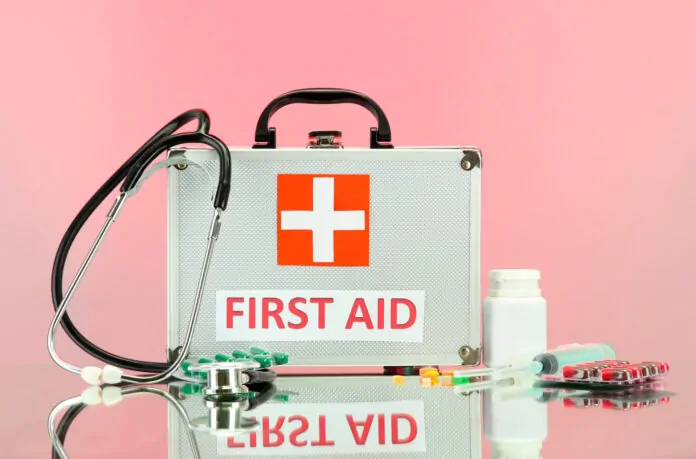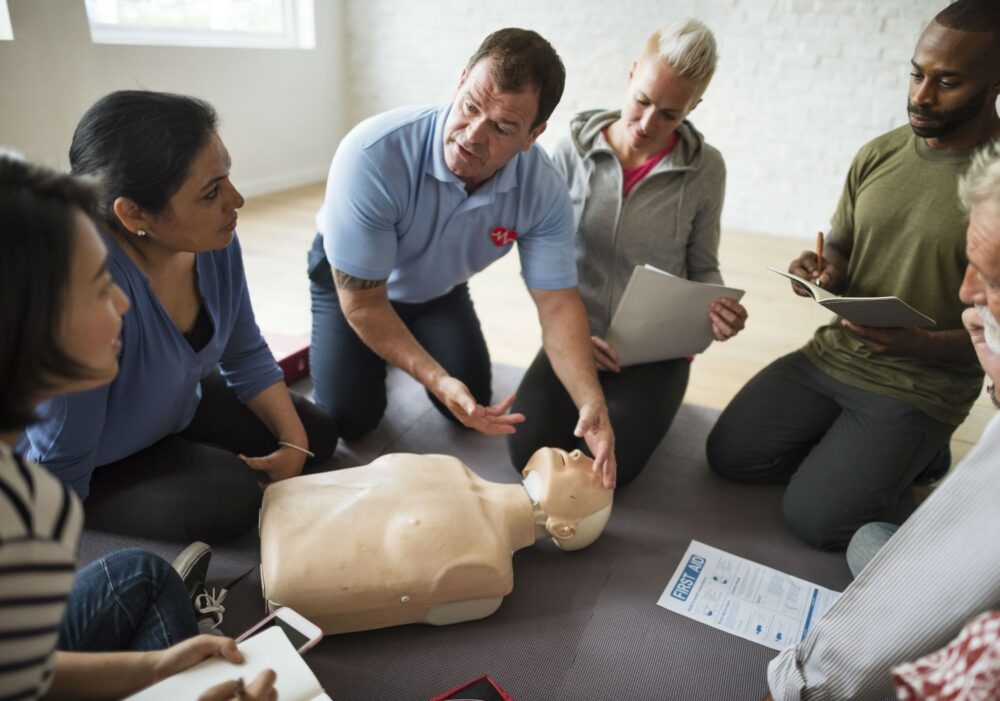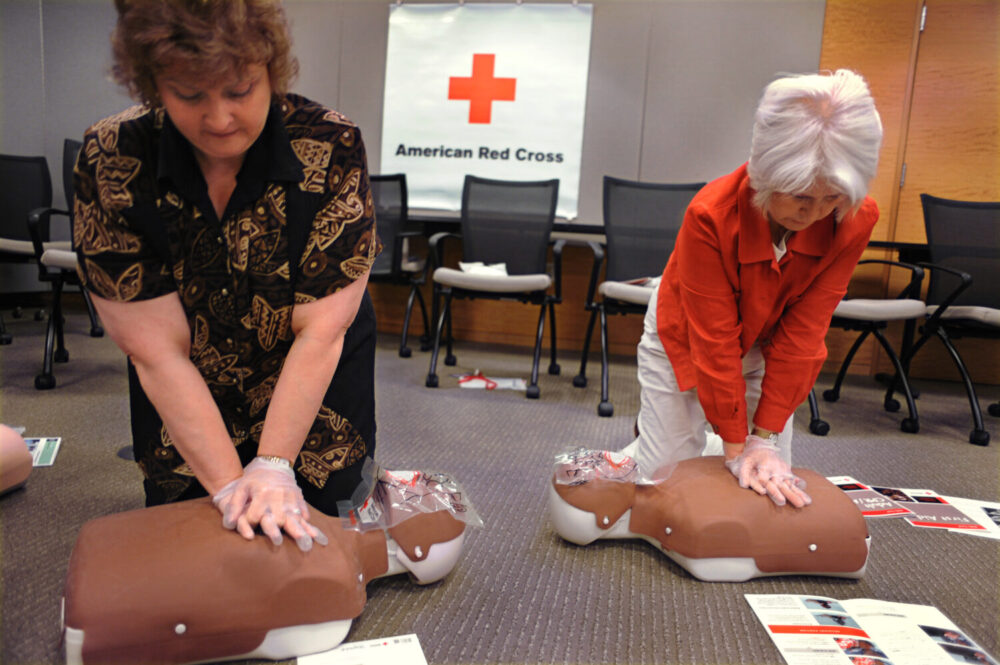First Aid Certification is pivotal, acting as the cornerstone for acquiring essential life-saving skills. A thorough understanding of first aid principles enables individuals to render immediate assistance during medical emergencies, potentially mitigating harm and preserving life until professional medical help arrives. In this ever-evolving world, it is indispensable to be proficient in the basics of first aid, given its critical role in situations ranging from minor accidents to severe medical crises. The subsequent sections will delve into the intricacies of first aid certification, providing insight into the validity period of such certifications and the importance of staying abreast with initial help knowledge and skills, ensuring readiness to act in the face of emergencies.
Validity Period of Basic First Aid Certification

Source: c2cfirstaidaquatics.com
The quintessential basic first aid certifications typically hold validity for approximately two years. This time constraint is instituted to ensure that individuals sustain optimum proficiency and are abreast of the most current initial help techniques and protocols. Basic first aid courses impart pivotal skills, focusing on handling emergencies efficiently, aiding unconscious individuals, addressing wounds, and managing bleeding. The expiration dates on these certifications prompt individuals to perpetually revisit and refresh their knowledge base, maintaining a high standard of readiness and competence in administering first aid. This continual learning process is crucial, keeping first aid providers well-informed and prepared to handle various situations, adapting to the nuances of different emergencies with efficacy and precision.
Advanced First Aid Certification
Advanced First Aid Certifications are tailored for those who aspire to delve deeper into the realms of first aid, acquiring a more comprehensive understanding of medical emergencies and the corresponding interventions. They differ markedly from the basic certifications, incorporating extensive knowledge and skills to address a myriad of medical conditions and emergencies effectively. These certifications typically maintain their validity for a span of two to three years, dependent on the criteria stipulated by the respective issuing organizations. Advanced certifications cover an expansive array of medical knowledge and are meticulous in emphasizing intricate skills like casualty assessment and administering aid for severe, life-threatening conditions. If you’re interested in this, you can learn more here.
Specialized First Aid Certifications
Specialized First Aid Certifications such as CPR and Wilderness First Aid are geared towards imparting specific skills and knowledge to address distinct types of emergencies. These certifications are integral in equipping individuals with the proficiency to manage unique emergency scenarios and typically have validity periods that span between one to three years. For example, CPR certifications hone skills specifically in cardiopulmonary resuscitation, a crucial intervention for cardiac emergencies. Similarly, Wilderness First Aid Certification empowers individuals with the capability to address and manage medical emergencies in remote and isolated locations, emphasizing adaptability and resourcefulness. These specialized certifications are pivotal, enhancing the overall competence and preparedness of individuals, enabling them to respond effectively to a diverse range of emergency situations, each with its distinct set of challenges and required interventions.
Factors Influencing Certification Duration

Source: omnitos.com
The duration of a first aid certification’s validity is subject to a multitude of factors, including the evolution of medical guidelines and the dynamic nature of medical knowledge. It’s imperative for individuals to consistently update and refresh their skills to align with the most current and effective initial help practices. The evolving landscape of medical science necessitates a continual learning approach, ensuring that first aid providers are equipped with the latest methodologies and are adept at implementing them proficiently. The periodic renewal and reassessment of initial help knowledge underscore the importance of sustaining a high level of preparedness and adaptability.
Renewing First Aid Certifications
The process of renewing a first aid certification is a crucial step in maintaining the competence and readiness of first aid providers. Renewal generally involves a reassessment of knowledge and practical skills to ensure that the certified individual can perform initial help interventions effectively under various circumstances. The benefits of certification renewal extend beyond mere compliance with regulatory requirements; it fosters a culture of continuous learning and adaptation to the evolving landscape of medical emergencies and responses.
Lifelong First Aid Skills
Even after a certification expires, the importance of retaining basic helping skills is undiminished. Lifelong readiness to face emergencies is a commendable aspiration, and it involves constant learning and practice. Regularly revisiting first aid principles, practicing interventions, and staying informed about the latest developments in emergency medicine can significantly enhance an individual’s preparedness for unforeseen situations. Possessing a robust foundation in initial help principles is instrumental in making swift and informed decisions during emergencies, potentially mitigating harm and increasing the chances of positive outcomes.
Employer Requirements for First Aid Certification

Source: topclassactions.com
In many professional settings, employers stipulate specific requirements regarding first aid certification to ensure workplace safety and compliance with regulatory standards. Meeting these requirements is not merely a matter of compliance; it significantly impacts job prospects and career advancement. For individuals in sectors where initial help knowledge is paramount, having up-to-date certifications can be a distinguishing factor, enhancing employability and demonstrating commitment to professional development and workplace safety.
Community and Volunteer Opportunities
First aid certification plays a pivotal role in community service and volunteer work. An up-to-date certification stands as a testament to an individual’s readiness and competence in offering medical assistance in emergencies, thereby augmenting the operational efficacy of volunteer organizations. In community settings, having certified initial help providers can substantially improve the overall resilience and preparedness of the community to face medical emergencies, thereby fostering a sense of collective responsibility and mutual assistance.
Online First Aid Certification
With the advent of digital learning platforms, online first aid certification has become increasingly accessible. These online courses offer a flexible learning environment, allowing individuals to acquire or renew certifications at their convenience. However, it is crucial to weigh the pros and cons of online certifications. While they provide unparalleled accessibility and flexibility, the lack of hands-on practice sessions can be a limiting factor in acquiring practical skills, and therefore, it’s imperative to choose programs that combine online learning with practical assessments to ensure comprehensive learning.
Recertification Challenges
Individuals often encounter challenges while renewing their first aid certifications, including time constraints, accessibility issues, and changing prerequisites. Addressing these challenges involves proactive planning and seeking resources that align with individual needs and preferences. Leveraging online resources, seeking accredited programs, and staying informed about the recertification requirements can substantially alleviate the challenges associated with recertification, ensuring uninterrupted validity of initial help certifications.














